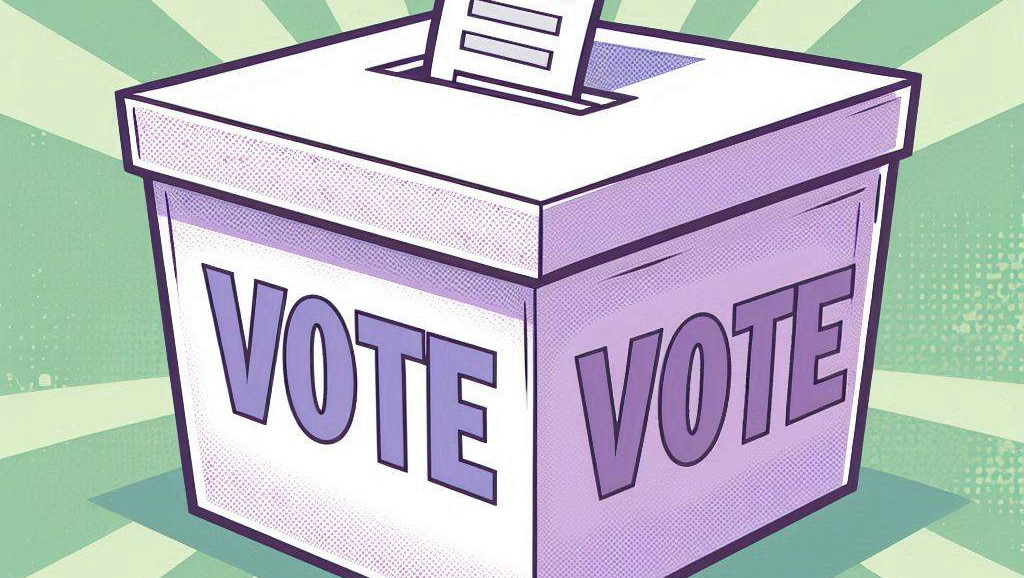New Government – New Era for Ad Tech?
by on 12th Jul 2024 in News

What does Labour’s victory in the UK general election mean for ad tech? With the change of government, what can the industry expect?
Labour won a landslide victory in the UK general election last week, closing the door on 14 years of Conservative administration. The last decade has been a turbulent one, from the disastrous effects of Brexit to the Covid-19 pandemic. As we turn the page to a new political chapter, what can we expect for the advertising landscape?
Investment in the creative industries
With the Conservatives on their way out and Labour taking the reins, the UK will likely look quite different in a few years time. At the Labour Creatives Conference in March, the party detailed plans to grow the creative industries, acknowledging their role in contributing to the UK economy. Labour outlined their intention to ensure the workforce has the creative and digital skills they need, as well as making freelance work less precarious. Another objective laid out involved introducing measures to make it easier for small businesses to invest in their future growth.
In regard to this, the IPA elaborates on key areas of policy they outlined earlier this year which they would ask the new government to focus on, reporting to be pleased that many align with plans set out by Labour. The IPA stated:
“At the top of our list was ‘the need for an incoming government to champion our industry and help it to continue to thrive in order to help the UK.’ And so we were delighted that, in Thangam Debbonaire’s (Shadow Secretary of State for Culture, Media and Sport at the time of the Plan’s publication) foreword she asserts that Arts and culture have intrinsic value, stating that: ‘They and the creative industries as a whole, also have enormous economic value to the UK, and huge growth potential. Their story is already one of growth against the odds, with their value (GVA) increasing by 5% in real terms between 2019 and 2022, compared with 2% growth in the overall economy.”
The importance of greater investment in the creative industries is also maintained by the Advertising Association (AA). On the appointment of Lisa Nandy MP as Secretary of State for Culture, Media and Sport, Hayley-Jones, director of Policy & Government Affairs at the AA said:
“The UK advertising industry is an important part of the creative industries, working alongside our colleagues in film, TV, the arts, fashion, gaming, design and more to power our creative culture here in the UK and on the world stage…We look forward to working with the Secretary of State to help achieve the new government’s priorities, including increased investment in the creative industries in the regions and greater support for creative education and skills which are critical to our industry’s success.”
A more sustainable future?
Sustainability was a key issue for some when it came to casting a vote. Just a few weeks ago, the Climate Change Committee stated that the UK’s chance of meeting climate pledges has actually worsened since last year. This is unsurprising, considering the Conservative government’s lack of urgency in tackling environmental issues. Last year, Rishi Sunak announced a U-turn on his government’s climate commitments, including pushing back the deadline for selling new petrol and diesel cars, as well as the phasing out of gas boilers. At the start of this year, Sunak handed out multiple new North Sea oil and gas licences.
What about Labour? The party’s manifesto pledged to accelerate the UK’s progress to becoming ad net zero. Easier said than done, though: in February, Labour cut its £28bn green investment pledge by half. Where does this leave ad tech?
Not long ago at Cannes, we saw Ad Net Zero launch a Global Media Sustainability Framework which sets out to function as a voluntary standard to facilitate consistent and comparable measurement of greenhouse gas emissions produced by the media industry. This was an incredibly positive move for the industry, making it easier for companies to understand and measure their environmental impact. Yet, there is still a need for regulation. With reaching ad net zero still being an objective for the Labour government, we can – hopefully – expect to see some progress from governmental policies extending to the ad tech ecosystem in the coming years.
Industry regulation
In terms of privacy, regulation has evolved greatly over the last decade. We saw the introduction of the Data Protection Act 2018, to function as a UK implementation of the EU’s General Data Protection Regulation (also introduced in 2018). As time has gone by, the importance of consumer privacy has continued to increase rapidly. Nick Reid, SVP & Managing Director, EMEA at DoubleVerify stated:
“With strong calls for consumer protection and greater transparency in online advertising, this issue is expected to rank high on the agenda for the new UK Government. It is crucial for tech companies to be proactive to stay ahead of regulations and ensure compliance with existing data protection laws. Moreover, the continued rise of Artificial Intelligence may trigger additional scrutiny to ensure ethical standards are met, ensuring its responsible use within the industry.”
Looking to newer areas of ad tech such as AI, there are more uncertainties. In order to avoid stifling innovation, the approach to introducing regulation has generally been cautious: the Conservative government took a largely “pro-innovation” stance. Earlier this year they created a framework for regulating the technology, proposing the application of five key principles: safety, security and robustness; appropriate transparency and explainability; fairness; accountability and governance; contestability and redress. Labour’s manifesto did not propose any specific legislation to regulate AI.
Despite the need for further regulation in certain areas of advertising, conscientious examination of the industry remains vital before putting forward new legislation. IAB UK’s Head of Policy & Regulatory Affairs, Christie Dennehy-Neil elaborated:
“We’re calling on Labour not to automatically pick up where the Conservatives left off when it comes to making policy decisions about further regulation of digital advertising, and to take time to carefully interrogate the evidence and define its priorities. We’re looking forward to working with the new Government and our members to continue to evolve the regulatory framework in an evidence-based and proportionate way. It's in everyone’s interests to strike the right balance between managing the risk of consumer harm and supporting the UK’s digital advertising industry – and the wider digital economy that it drives – to thrive.”
Looking to the next five years
As we move into the future, we can be sure people will continue looking to technology to enhance and improve their lives. Chris Walker, Head of Policy and Government Affairs at the AA stated:
“Harold Wilson wanted Britain to harness ‘the white heat of the technological revolution’ in 1963, and since then politicians have looked to tech to fix their problems. Labour's plans are still in the warm words department: world leader in AI, unleashing tech solutions across the public sector, and opening up data sharing. Peter Kyle, the new Technology Secretary, has the trust of No. 10 – the details of his plan to deliver will be key.
“The AA is already engaging with the Government on key areas such as ad tech, from our vital contribution to economic growth to the ongoing Online Advertising Programme. To keep our sector on the front foot, we continue to advocate for a strategy around creative and digital skills, including reform to the apprenticeship levy. We will work closely with new Ministers and officials to put our industry's voice at the heart of government.”
Labour’s rule is only just commencing. We hope positive changes are in store for our industry, from more investment in the creative industries to a more green advertising ecosystem. Legislation introduced/modified by Labour will certainly play a role in shaping the direction of the ad tech industry within the next five years.
Ad TechEnvironmentalSustainability








Follow ExchangeWire